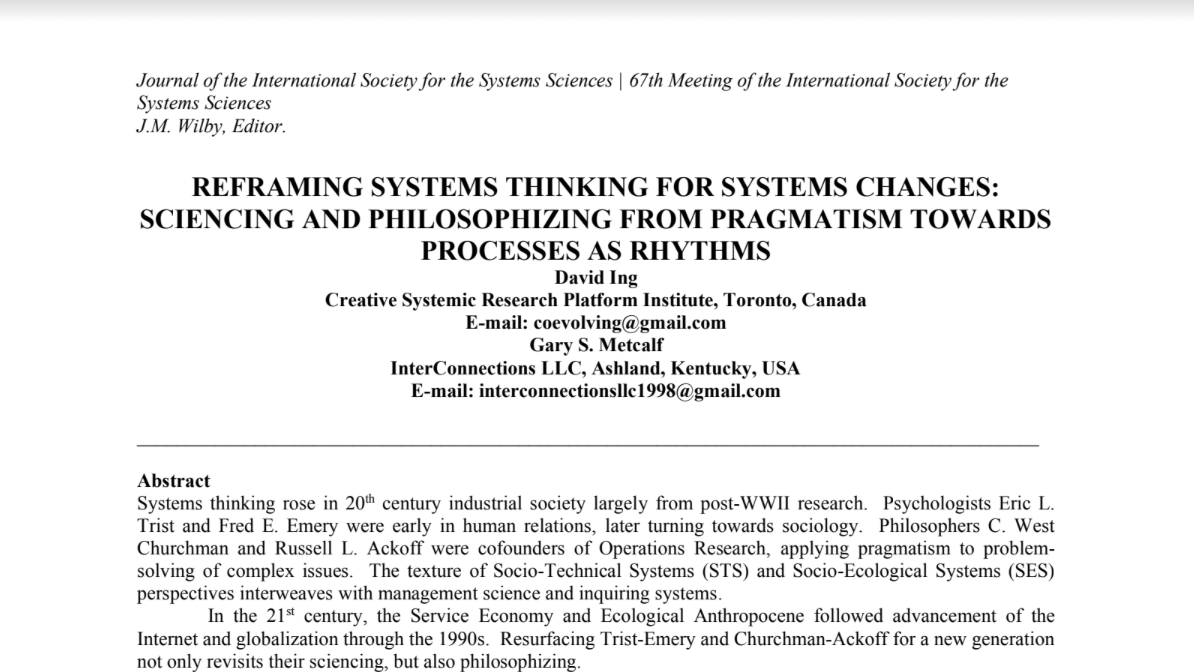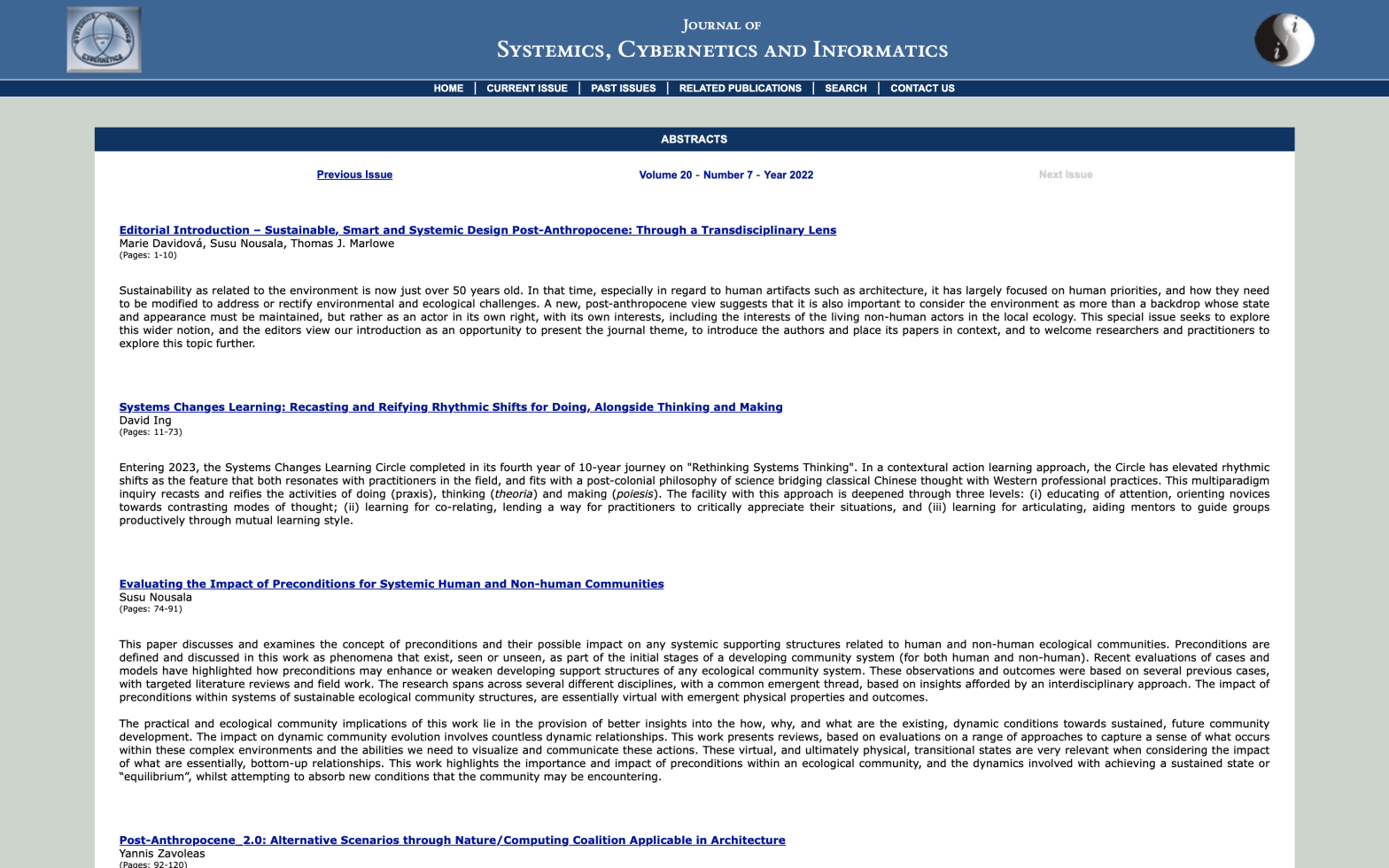David Ing and Gary S. Metcalf, “Reframing Systems Thinking for Systems Changes: Sciencing and Philosophizing from Pragmatism towards Processes as Rhythms.” Journal of the International Society for the Systems Sciences 67: 4154. https://journals.isss.org/index.php/jisss/article/view/4154.
Abstract
Systems thinking rose in 20th century industrial society largely from post-WWII research. Psychologists Eric L. Trist and Fred E. Emery were early in human relations, later turning towards sociology. Philosophers C. West Churchman and Russell L. Ackoff were cofounders of Operations Research, applying pragmatism to problem-solving of complex issues. The texture of Socio-Technical Systems (STS) and Socio-Ecological Systems (SES) perspectives interweaves with management science and inquiring systems.
In the 21st century, the Service Economy and Ecological Anthropocene followed advancement of the Internet and globalization through the 1990s. Resurfacing Trist-Emery and Churchman-Ackoff for a new generation not only revisits their sciencing, but also philosophizing.
Trist-Emery Socio-Psychological Systems (SPS) and STS perspectives extended the structuralist psychology of Gestalt, through Andras Angyal and Kurt Lewin. The SES perspective built on the pragmatist metaphilosophy of Stephen C. Pepper. Sciencing by Churchman-Ackoff encouraged Operations Research beyond mathematics towards collaborative decision-making. Postwar applied philosophizing built on the experimentalism of Edgar A. Singer Jr. This lineage traces from the Metaphysical Club circa 1890, through the 1980s.
Philosophizing in the 21st century provides new lenses for the systems sciences. Through ecological anthropology, Tim Ingold depicts the lives of lines, and texture in weaving. Through Classical Chinese Medicine, Keekok Lee distinguishes yin qi and yang qi. In post-colonial constructionist program of Rethinking Systems Thinking, principal concepts of (i) rhythm, (ii) texture, and (ii) propensity have become the core of Systems Changes Learning practices, theory, and methods. A new world hypothesis of (con)textural-dyadicism is proposed, combining STS and SES features. The associated systems theory foregrounds time-space changes over the defining of space-time systems and boundaries. Philosophizing across Western and Classical Chinese traditions requires deeper inquiry and education.
Keywords: Systems change, philosophy of science, pragmatism, Chinese philosophy, socio-technical, socio-ecological
More about this publication below


